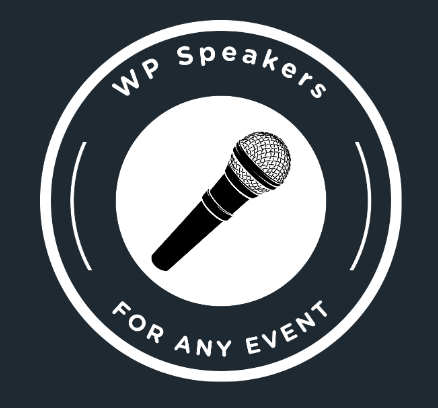Being a Black Man in Tech
Episode 1: What is it like being a black man in tech?
While resources exist to bring black women into tech, you may struggle to see or find active black men. In this episode Michelle Frechette talks to Caleb Matteis, Jon Clark, and Hashim Warren about operating on teams being black, the importance of mentorship for young black men, and more.
Our Panelists
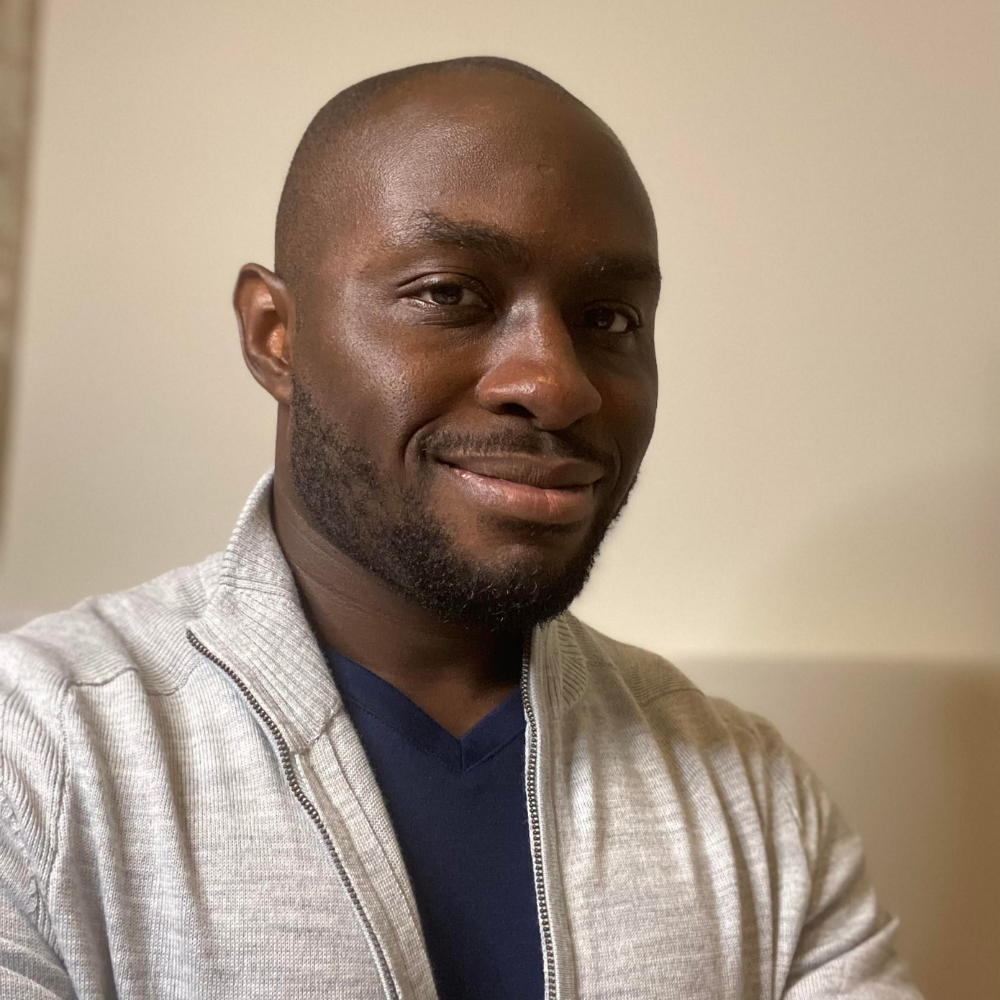
Jon Clark
Jon Clark is a Marketing Automation Manager at StellarWP and a growing Youtuber who talks about film marketing. In his spare time he can be found diving into all things data and analytics, playing sports with friends and hiking with his fiancee and dog. YouTube Channel
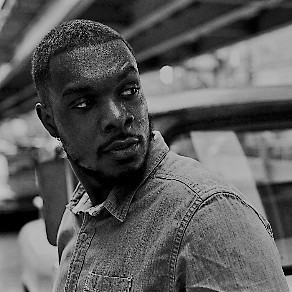
Caleb Matteis
Caleb Matteis is an accomplished Associate Software Engineer at Penske Media Corporation, leveraging technology to drive innovation and meet business objectives. With a transformative journey from mailman to software engineer.
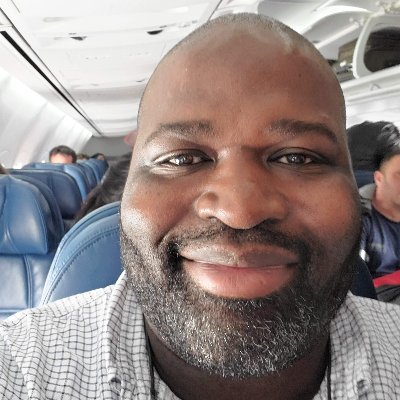
Hashim Warren
Hashim Warren is a Product Marketing Manager at Red Rabbit Solutions, specializing in helping developer tools cross the chasm. He is based in Greensboro, North Carolina. Red Rabbit Solutions
Episode Transcript
What is it like being a black man in tech?
Michelle Frechette :
Welcome to our webinar series for Underrepresented in Tech, talking to different subgroups of underrepresentation as we talk to six different groups in this year’s webinar series. And today, I am absolutely pleased to be speaking with some gentlemen who are Black men in technology. Welcome everybody, thank you so much for being here. It’s so good to have you.
Hashim Warren:
Thanks so much.
Jon Clark:
Thank you.
Michelle Frechette :
Absolutely.
Caleb Matteis:
Thank you for having us.
Thanking the Sponsors
Michelle Frechette :
My pleasure. I want to give props also to our sponsors. So, today we are being sponsored by Yoast, MasterWP, WP Speakers, Paid Memberships Pro, GoDaddy Pro, and Crowd Favorite. And we want to give them huge props and our gratitude for helping sponsor this. We believe it’s so important to pay people for the work that they do, and we wanted to be able to pass that on to y’all. So, thank you so much for making this possible. And thank you our sponsors for making that possible too. So, I wanted to talk to Black men in technology, because believe it or not, Black women often get more of a voice in technology.
When we look across things like people always wanting to interview. So, they’re looking for the biggest bang for their buck, like, “Who is the most underrepresented person?” A Black woman tends to be, well, they’re women and they’re Black people. So, we look at that a lot, right? So, we see a lot of women who are on panels, and are asked to join conversations. So, we really wanted to give y’all an opportunity to talk about what it’s like to be a Black man in technology.
And I know a lot of us work in WordPress. This isn’t specifically about WordPress, but feel free to talk about any of those things. So, before we do that, I do want to give you an opportunity. I would love to have you introduce yourselves, talk a little bit about what you do in tech, where you work, your titles, whatever you want to share with us. And Hashim, since you’re unmuted, I’m going to go with you first.
Panelist Introductions
Hashim Warren:
Thanks, Michelle. So, my name is Hashim Warren. So, I’ve been working with WordPress since it first came out, I was starting with choosing Movable Type. While I was an editor at Vibe magazine, our IT guy wanted us to use WordPress. I said, “Let’s use Movable Type.” We fought it out and we used Movable Type, and that was a mistake at the time. Though shout-out to the Movable Type. Right now, I’m a product marketer, and I specifically like to work with dev tool companies, dev tool companies that have some type of SaaS offering. And also I am located in Greensboro, North Carolina, but I grew up in New York City. So, that’s who I am.
Jon Clark:
My name is Jon Clark. I work for StellarWP as an automation manager. I do a lot of other extra little things as Michelle already knows. And I do have some side stuff where I am a small YouTuber as well. And I just enjoy being in tech. I first got started with WordPress actually on just a whim. I was literally just trying to figure out if I wanted to have some kind of maybe blog or website, and decided to just try it. I remember literally writing all of my stuff on a napkin, and then applying it the next day. I waited for a sale to get my domain and everything. And I just learned the ins and outs ironically, with no guide or anything, just kind of trial and error. And then ultimately ended up working within. And I’ve enjoyed it. I am based out of Clarksburg, Maryland now, but I am also from New York City.
Caleb Matteis:
Well, my name is Caleb Matteis. I’m a associate software engineer at Penske Media Corporation. I have a very non-traditional tech background. I was a male carrier before getting into tech, so I went through the bootcamp route. And how I found out about WordPress was like a Meetup group. Because I always heard bashing of WordPress, like, “Oh, WordPress, oh, don’t use it. What you want to be a real developer? Don’t use WordPress.” So I said, “I’m curious, I want to get into WordPress.” And that was kind of the best decision I’ve ever made is getting into WordPress, and getting into the WordPress community. And also like Clark and Hashim, I’m from New York as well, but I’m based in New Jersey.
Michelle Frechette :
So, thank you all for being here. If you haven’t had an opportunity, check out Caleb’s keynote address from WordCamp Montclair this year. He gave a great talk about his trajectory into WordPress, and it was pretty awesome. So, yeah, just lots of opportunities to see you all at work. Now, let’s dig right into the questions. So, we have questions. You’ve all seen them in advance, hopefully you’ve had the time to really think them through.
Question 1: “What do you wish people knew or understood about what it is like to be a Black man in tech?”
Hashim Warren:
So, often I am the only Black person in the room. And sometimes, like you kind of alluded to, Michelle, I’m the only Black man in the room because there’s more women, which I absolutely love. So, I often feel the pressure of, that I’m representing more than just me. And I don’t like feeling that pressure. It’s not a pressure that I kind of welcome, but I do feel that pressure that I’m representing other Black people and other Black men. And sometimes I get asked to represent other Black people.
So, I was at one job, and they wanted me to review some wording on a website or something like that, or I think they were doing an invitation specifically to a Black community. And they asked me to review it to make sure they weren’t tripping over any words that would maybe offend people, that it was attractive to Black people. And I had to tell my manager, “I don’t do that. I don’t know what they want to see.” And I told her, “I’m not captain of the Blacks. I don’t know. There are people who have their ears to the ground, they’re trained, they know, they know what you should say, and they could give help. They cost a lot of money. You can go hire that person. I’m here to move our numbers in terms of revenue, and I also learned how to code. So, I’m here to handle the coding issues that the marketing team has. That’s my specialty. I do not know what other Black people want, and you shouldn’t judge other Black people based on me.”
So, the other thing that happens is, I have the sinking feeling that if a Black man before me did something or did something wrong, it seems to have an impression on me. And I have the fear that if I do something wrong, if I flub in some way, it’s going to play in their minds for the next Black person coming along. So, that’s the pressure. And it’s the hardest thing to explain to my friends who don’t have that kind of feeling that they’re representing more than just themselves. But that is the major thing that I would say. I don’t represent anyone else more than myself.
Jon Clark:
No, I can agree with that considerably. I mean, I’m fortunate enough to work with… There’s certainly other Black people. One of my closer coworkers is Karmen Kendrick, a Black woman who is really good at what she does. But there’s the idea of getting… Well, one, getting into tech in general as a Black man, can be kind of daunting a little bit, especially. And Caleb will be able to speak to this more. I’ve gone to some of those bootcamps, I’ve never completed them, so he’ll be able to tell you. But you walk in there, depending on where you go, you might be the only person in there who looks like you. You’ll see a lot more white, Asian, Indian in terms of those varieties. And it can feel a little daunting, because you’re not indicative. And what could be even harder is if you didn’t grow up with that kind of STEM household or somebody who was in that kind of field, to not be able to show you how things are going along.
My fiance faces the same thing where she is one of the only Black scientists at her job, and she did not grow up in that household. So, we’re kind of a STEM household now. But it’s interesting because I wonder how my future family will be able to gain from being around that kind of environment, versus how we did not necessarily have that. But, at times, it’s like, “Man, how many people do I represent?” That really does kind of start to play a factor a little bit. And then there’s also the aspect of, “Am I doing enough?” Which I think a lot of Black men can feel that way just because of the way society can be at times, and just the overall responsibility that is there, even if it’s hidden.
Michelle Frechette :
Yeah, that makes a lot of sense. And of course, things I hadn’t thought through before. Yeah, I think that brings a lot to… Caleb, what are your thoughts on this as well?
Caleb Matteis:
Oh, I’m going to agree with a lot of what Hashim and Clark said. So, the company I’m with now has really good representation, better than what I’ve seen, experienced. And the environment is very inclusive as well. But to Hashim and Clark’s point, as a Black man, you do feel like a level of responsibility that you’re representing for all Black men. And then also Hashim mentioned earlier, when I… So, when I first started getting into tech, I saw a lot of great and wonderful opportunities for women, which is awesome, and Black women. I didn’t see much tailored to young men, young Black men in particular. So, that’s one of the contrast that I saw.
And on my team, I’m the only Black man on my team, but the environment is really good on the team. But I definitely could relate to the feeling of needing to show and prove. To the point where, it’s very psychological. To the point, you’ll overburden yourself with pressure to perform, and maybe not ask for help as soon as you should have. Because you’re like, “Oh, man.” I’m like, “Oh, I don’t want to come across like I don’t… I should be doing this all myself.” So, that’s some of the pressure.
Funny enough, some of that could push you to excel to be great, but then also it could cause some anxiety, which is not good either. To have that weight on you is like the representation for all Black men, it’s a heavy one. But that’s kind of how society we live in is structured when you go into these corporate settings. But a silver lining I do see is that, one thing I do as a Black man in tech is that, if you are capable, if you are good, you will excel. You will excel. So, there’s a bit of a meritocracy in tech, which I do like.
Michelle Frechette :
That makes sense. So, that at least your work can be recognized for what it is, is what I think I heard you say there. So, that’s good. As far as success goes.
Question 2: “What is the biggest challenge you think, facing either you or Black men in technology in general right now?”
Jon Clark:
The biggest barrier, I guess it kind of piggybacks off of what was being said before. The biggest barrier I had is I had no examples, personal examples. And for a lot of people, that’s going to be the biggest barrier for a lot of things. I mean, just in general, look at United States, I’ll speak to that. Just the advent of nepotism, or people who were able to just get some kind of, I’m not going to say free ride, because people work hard. But there are people who just will have access and doors opened just because their father or their mother was somebody, or their uncle or their grandfather. And that comes into play. And then you’re sitting there like, “Man, I wish I could take that route, but I don’t.”
And maybe if you’re lucky enough, and I have been. I will absolutely claim that I’ve been lucky enough to know certain people who have been able to kind of, they didn’t necessarily open the door, but they might’ve pulled me through a little bit, and things like that help. So, the barrier of entry for me personally has been just not knowing, but I’ve also used that as a way to then try to know people who could help me out and things like that. But I will say, there is a different kind of barrier for YouTube, I think, and that plays a part.
And Michelle, you’ve already heard this before, but it’s the aspect of… And Hashim already said it, representing. When you start to have a little bit of a platform, it doesn’t even have to be major, but it could be a little bit. You’ll get a lot of people within the Black community, Black men and women, and kids as well, where they almost want you to speak up for everybody, no matter what side you might fall on, no matter what your… it doesn’t matter. It’s like, “Hey, you should be speaking for this, and you should be on this side,” and it doesn’t even matter what you might be talking about. So, I’ve also found that trying to… You hear this with athletes a lot too, where they get signed, and all of a sudden they have to take care of everybody. It’s the trying to please everybody can also be a slight barrier when getting into something that you may not see a lot of faces in.
Michelle Frechette :
Yeah. Things I hadn’t thought of before, for sure. Caleb, what other challenges or barriers have you faced or do you think that Black men in general are facing today?
Caleb Matteis:
Like more of a community? Like helping a lot of other Black men navigate tech? Because it’s like a Wild Wild West when you’re out there. You’ll go on LinkedIn, and you’ll meet some people. And so far, a lot of people I met in tech, Black men in tech, have been very generous, but I think it could be a bigger community to help usher them in. Because I do see a lot of that, the parallel, I see a lot of that with women. So, I think that’s one of the biggest challenges is having a network of other Black men to kind of help you progress. “So, now that you’re in tech, okay, what’s the steps to help you know how to move in your company, or move forward in your career?” I think that’s a challenge to just have a group of Black men supporting each other, helping them move throughout their career.
Hashim Warren:
One of the things that would help me and also help other Black men is, being able to show solidarity, particularly within a job. So, if I wanted to, let’s say mentor specifically an intern who’s a Black man, I would feel actually nervous about that. What does that look like? Do they think I chose him because he’s Black? And maybe yes. But I’m going to guess if I was a white man, and I’m mentoring a young white man, there’s no second thought about it. “Oh, yeah, that’s normal.”
And so I tried to create a resource group from scratch with other Black coworkers, and there was some people in it, who they accepted the invite, but they didn’t really see a need for it, which is fine. But also I just realized recently that our first meeting was a lunch that we went to, but we kind of went undercovers. We didn’t announce it on the Slack channel that we’re having lunch together, and this is where we had a big company meetup, and we carved out a lunch together. So, that nervousness about showing solidarity is really tough.
And so I think that’s one of the barriers. There’s so many opportunities that I’ve received that I did not know existed, because I was friends with someone, and they let me know how things work. So, being able to do that to other people, and being able to decide to do that specifically to other Black men, and having the freedom to do that without any nervousness about it, I think that’s one of the barriers that we have right now.
Question 3: Do you feel a bigger responsibility, whether that’s from yourself or from external forces, to mentor other Black men within either your business or within technology in general?
Hashim Warren:
Jon talked about that kind of expectation when you’re building a community for people expect you to speak out about certain things. On the flip side, I do want to speak out about certain things and I do specifically want to help Black men, just because. I never sat down and decided that, yes, I want to help out other Black men. It’s just I know what Hashim at 17 years old looked like, talked like, and liked. And I would like to help the next Hashim. I know what Hashim, when he first opened a text editor, what that was like, and I would just like to help the next Hashim. It’s not even a thought about wanting to do it. Now, I don’t want that expectation. I don’t want people saying, “You should be.” But I naturally want to. And so that that’s the mix of feelings that I have are very similar to Jon, but the other side of it is just wanting to do that.
Question 4: With women in tech, we often look at each other as though we expect each other to want to raise each other up. Do you feel that also within the Black community?
Jon Clark:
Yes and no. And it highly depends on a lot of things. It’s easier for women… This might lead into the next question you have, Michelle. But it’s easier for women, I think, especially Black women because there’s a lot of stuff out there for them. When I first got started in tech, and I was looking for a community, and Caleb mentioned Meetup, that was the only community I could actually find that was inclusive for me. There were a lot of stuff, and I’m in the DMV area, there was a lot of stuff for Black women that I’m sure I could have joined, right? I’m sure it could have been fine with and stuff like that, and it wouldn’t have been a turn away per se, but there wasn’t as much stuff for me there.
And so like Hashim said, “You kind of just find yourself, I want to help whoever.” Because again, I also remember when I didn’t have it, it would’ve just been nice to have. And so, now more than ever, I’m starting to see more geared towards everybody, and then everybody’s going to have their own little group, and sect and thing like that. But I think that’s a tough one because you just never know.
Michelle Frechette :
Speaking of the next question, I think that you do lead into the next question very nicely, and I’m going to turn to Caleb first and ask this.
Question 5: “What are some communities or organizations in tech that you see doing things right, from your perspective?”
Caleb Matteis:
I think one community who’s doing a fantastic job, actually Michelle, I found out about it through Michelle, is Black Press. I think they do a phenomenal job of lifting people up in the community. I think WordPress in general, how it’s set up is really looking to include people, especially one of the founders of WordPress is a Black man. When I first found that out, I was… I was like, “Wow,” I was kind of blown away. I was blown away by that. But I think Michelle is also a person who’s doing phenomenal things to help unrepresented groups in tech.
And just going back to what Jon said too, as far as, is there like a reach back? I think the Black women, they definitely do a better job of reaching back. As Black men, we don’t have a network where we are like, “Okay, we’re reaching back.” I don’t know why that is. I don’t know if it’s just like someone just taking a leap or proximity, but I don’t know, maybe we could do something in Black Press to extend something like that. But to answer the question, Black Press does a phenomenal job.
Hashim Warren:
Okay, this one is going to get boring, because-
Michelle Frechette :
It’s okay.
Hashim Warren:
… I think WordPress is fantastic. Going to a WordPress meetup locally, the local one in my area is very welcoming. Going to the big WordPress meetups has been great communicating with people on Twitter in different communities, Black Press has been fantastic. And I remember when I was renting out a shared office to write my coding projects, because I wanted to break in. And I met this solo entrepreneur who works full-time developing with WordPress, maintaining people’s sites. And Black man too, who was laughing at me because he said, “You’re doing too much, dude. Let show you what I do.”
And it was fantastic for both of us to have this conversation there, and that was great. And we both felt very welcome in the WordPress community. So, WordPress is one. One that I’m experimenting with is kind of the open-source database communities like MySQL, Postgres. And one thing that’s new there is that there are more SaaS database startups that are using MySQL, using Postgres. And so there’s more ways to get involved all up and down the stack. So, if you use something like Supabase or use something like Xata, or use something like, let’s see, PlanetScale, you can build with that, but then you can also participate in the open-source technology that they’re based on, which is Postgres and MySQL.
So, I’ve been experimenting in that place. The fact that MySQL participating there, you also kind of participating in WordPress too, in any way there. It’s really interesting. So, I’m experimenting with those communities which also seem very merit-based. If you write something for them, if you contribute code to them, then it’s just you are a contributor. And so I’m really kind of experimenting there too.
Jon Clark:
Well, Underrepresented in Tech, I think, which that’s you, Michelle, and the people who contribute to that. I think that’s just fantastic for people who might feel lost. And feeling lost is a big thing that can happen when you’re starting in tech. And so stuff like that is a big deal when you’re learning. I think freeCodeCamp and the community there has been very helpful. That’s where I learned to do some of my early coding in terms of HTML, CSS, JavaScript and stuff like that. And then recently, BIT, Blacks In Technology has been something that I’ve met some people who have basically been affiliated with them, and I’ve kind of started to get in there as well. So, there’s more that are popping up, and I hope that those continue to just get bigger, and have more people join and just have an open conversation.
Michelle Frechette :
Excellent. And we will put some links to some of these organizations on this page. So, when somebody comes to watch this episode, they have access to these resources that you’ve all mentioned too. So, thank you for that.
Question 6: “What kind of change would you love to see either long-term or maybe both?
Long-term and right now, what do you think some changes would be that would make things, I don’t want to say easier, but just would make things better as a Black man in technology? Caleb, I’m going to start with you.
Caleb Matteis:
Well, I gathered from what we all were saying. I think one of the biggest things I would like to see is a community that is focused on helping younger Black men, Black men in general, who want to get into tech, where there’s a pipeline. Like my cousin, she does something really cool. She does STEM for dance and it’s for girls. So, not that we do anything like that per se what I meant, but if that’s cool, if they want to do it. But just something that’s geared toward younger Black men who want to get into tech, and helping them navigate. I think that’d be a really good long-term thing to do to kind of get that pipeline of young Black men getting into tech, and then having that mentorship, and then having also a community that’s built around them, so.
Jon Clark:
I agree with that completely, actually. I almost feel like we have to… And Caleb and Hashim will probably know what I’m talking about here. And Michelle, you’ve probably heard this too, of just that thought process of depending on what community you’re from, the only way out might be like to be an entertainer or an athlete. And if you’re not one of those, then all of a sudden it’s like, “All right, we’ll see what you can get, but good luck.” And there’s always a pipeline for those two things. It’s like, I wish we had a pipeline for… And even then, not everybody makes it into that, right? But I wish we had a more stable pipeline for tech, and getting people… Tech is literally the future. We’re living in it, and it’s only going to grow with advent tools like AI and all this other stuff coming out.
So, we’re going to need people to be able to handle those types of things. We’re not around forever, so we got to help the next generation come up. And if we had a pipeline, and had it where it felt accessible, and people were available to showcase that accessibility, I just think that would help greatly. Especially for Black men, just because there hasn’t been as many tools, and it’s almost as if there’s a little bit of a box. And if you don’t fit that box, then you can’t be in. And I don’t want to ever be a gatekeeper or have a gate-keeping situation when it comes to that, because there is enough room for everybody.
Hashim Warren:
My number one thing is, I want tech companies to pay people who choose to reach back, and give back. So, tech companies pay a lot of money for a recruiter to recruit people. So, if you’re paying $10,000 for someone to recruit people, if I choose, can you pay me $5,000 to mentor locally? Or to go and speak? Or to go back to my old campus and participate there as an alumni? So, I would love for tech companies not just to think about and try to do things that are more diverse and equitable, but I would love to see them focus on having an actual budget where they pay for other Black men who want to reach back, give back, and kind of create that pipeline there. So, we’ve done a few years of learning and talking, and I would love to see actual budgets go to the people who can actually do the work, not just like the specialists, but the people who are choosing to do it in their spare time. I would love for that time to be sponsored by companies.
Michelle Frechette :
Yeah. No, that makes a lot of sense. I started to thinking about, like you said, “Speaking,” It made me think about the movement that we’ve been… especially at Underrepresented in Tech, we’ve been working on a lot, which is educating people on a way to achieve better balance with representation and inclusion on our speakers list, for example. And I think we’ve really started to see some movement on that, which has made me really super happy because it’s so frustrating when you feel like you’re preaching at the choir, or not even preaching, you’re preaching at a brick wall all the time, and that you’re like, “Is anybody listening, right? Kind of thing.
And so I kind of wanted to hear what your thoughts are on,
Question 7: “What do you think we can do better to make sure that we are more inclusive?
not just at our companies at hiring, but in organizations, like when we’re setting up, whether it’s a WordCamp or any other kind of event, and making sure we have a more inclusive lineup, and so that we get better representation from more people and more perspectives?”
Jon Clark:
And this is just this country in general. If we can figure out a way to not have so many people see diversity as evil, I think we could go to a good direction. Diversity doesn’t mean evil, it doesn’t mean Black people are taking… It doesn’t mean that, “Oh my goodness, we don’t want white people.” That doesn’t mean that at all. Diversity is literally just we’re trying to make things a little bit more equal across the board. And I work with tons of white people, I have a lot of white friends, and it’s a good way to get different ideas out, that you may not have heard of otherwise. It’s a good way to learn about other people that you may not have ever been in contact with otherwise.
And if that can be seen as something that’s very positive. Because there’s so many divides, and everybody wants to have this side and that side, and there doesn’t need to be that side. But in order for there not to be that side, we need to be able to have everybody come together, and that’s what diversity should be in the first place. That would be the hope that that can happen, and that we can get to that point. Unfortunately, there’s so many things that kind of act as blockers to that even to this day, but hopefully in the future, we can kind of get to that level.
Michelle Frechette :
Which also makes me think of, we talk at Underrepresented in Tech, that it’s about representation without tokenization. And so I think that, I’m going to guess that at some point… I know as a disabled woman, I have been tokenized before. I’m going to guess that as a Black man in tech, you have probably experienced something either tokenization or similar to that. And kind of curious about what you think about that as far as not just speaker lineups and things like that, but also super excited that Caleb spoke at Montclair, WordCamp Montclair, as the keynote speaker. And I could be wrong, but you might be the first Black man to do a keynote for a WordCamp in North America. And if that’s the case, wow, props, major props to you. Because you were chosen for the incredible message that you had to give, not because you were a Black man. And so I think that that’s super awesome. It’s inclusive, and it isn’t tokenizing. So, Caleb, what are your thoughts on that?
Caleb Matteis:
Oh, wow. I didn’t know that, by the way.
Michelle Frechette :
I’m not a 100%, but if not, the first amongst the first, let’s say that.
Caleb Matteis:
That’s [inaudible 00:33:15] good company. But I love what Jon said. I totally agree with what he said, as far as diversity not being a scary thing, and that’s kind of how great ideas come about, community collaboration. And usually, communities are diverse, so you can just kind of like mixing everything up. I like to use hip hop as a great example. So, you have so many people, diversed backgrounds, contribute to that and its growth, any art form is growth. And I think there’s definitely in tech, I think that’s definitely needed. So, the thing with tokenizing, I get that, I could understand that concept. But also, I think some people try to, I guess, play on that as a way to not be inclusive. It’s a way for them to be like, “Oh, did you just choose them because of this, or because of that?” When in actuality, no, that person was there already, so the person was fantastic already. Whoever was there was fantastic already.
So, I think the things that WordPress does to reach out, and to be mindful of that thing, I think those things are great. I think those things are awesome, and I think that would definitely continue to help. Because when you see those things, you feel like, “Oh wow, I feel comfortable.” That was one of the first things when I went to WordPress, I just felt comfortable. Even though it was remote, my first one, but it was just such an atmosphere of comfortability. So, I like the way that WordPress is going, and really being intentional about looking for diverse speakers. I think it’s awesome. I think intentionality is always great.
Hashim Warren:
Yeah, I completely agree. And I think some people, once they start to try to be intentional, they realize how hard it is. You’re trying to reach out to the people who are outside of your bubble. They’re not responding back because they don’t owe you their time. So, then you have another event where you don’t feel like it’s as diverse as you want. Number one is realizing that it’s difficult, but you have to be intentional. You have to be intentional over the long run. So, you have to really believe in what you’re doing. I also agree with Jon where… I’ve been on committees that we formed to make things more diverse, and more equitable. Yet, there’s some people on the committee who are very hypersensitive about what people think. We don’t want people to think that this isn’t merit-based or whatever they’re thinking, because they don’t understand diversity.
And I’ve worked at three startups where the first, I would say 25 employees were somehow related, or friends with the founders. Were they the best people for the job? And it really kills me where, after hiring your wife as the controller, and another startup, the wife was the lead designer. And at another one, the wife was the co-founder. I have places where, this person is head of sales, will also go to the same church as the founder, all these webs of relationships. Then I had an HR person say, “We’re trying to make our pipeline more diverse, but we don’t want to lower the barrier.”
And I’m like, “Wait a minute, we’re not diverse because of how it started. So, it should be okay for me to hire my friends and family too.” And let’s put aside this merit myth that we’re all playing to. And we’re trying to catch up with diversity, but we started with hiring friends and family. So, I think it’s absolutely ridiculous. So, I agree with Jon. Diversity is not a bad thing. Often, companies are trying to correct the way they were founded, which is they hired friends and family. And then they find that it’s hard, and they want to give up. So, I think like Caleb said, “You have to be intentional.” So, I’m disagreeing with these other Black men here, even though I said we’re not a monolith, here I am agreeing for everybody.
Michelle Frechette :
You have different experiences, but you also have shared experiences, and that is fair. Absolutely. Before we wrap up, I do want to ask you if there’s things that I haven’t talked about? If you have any final thoughts, anything that you think that we want people to know through this. So, here’s an opportunity to just say your piece on anything. So, who wants to go first?
Final Thoughts
Hashim Warren:
I want to add one other community that I felt welcomed into, but this is very new. So, I’ve decided to get more into AWS and cloud services, and I got my first cert just maybe two months ago, but there’s a Black woman at Red Hat who is a fantastic architect, and is deep into the AWS ecosystem, who was willing to get on the phone with me and help me to understand how to get my architect cert. And I just was blown away by that. So, I find that the AWS or the cloud community in general, is very global, so it’s diverse in that way.
And I’m just having fun learning. And a lot of the teachers in it of these certs are diverse, and come from different backgrounds. So I really love that. So I just want to give a shout-out to specifically the AWS community. There seems to be a lot of ways to come into it, whether IT, whether coding or otherwise, whether marketing or what have you. And I really love what’s happening there. So, early on for me, but I really like what I see there.
Michelle Frechette :
Jon, do you have any final thoughts?
Jon Clark:
Yeah. Ultimately, I think if we can find a way to just continue to do what we have to do as Black men in tech, and then throw that hand out for anyone who’s willing to grab on. And it doesn’t just mean, “Oh, just Black men.” But specifically if we can get Black men to come up. And I try to be intentional about, especially younger Black men in my family, cousins and other things like that, where I can throw out a hand and be like, “Hey, if you want to talk or if you need a resource or that kind of thing, reference, whatever, that I’m available.” And that I actually make the time to be available. Because without intention, a lot of that can seem fake or almost like a bothersome, if you will. And I don’t ever want to give off that kind of aura when help can… You might desperately need help, I don’t want to then seem like the person who doesn’t want to help.
So, being intentional with helping out, and trying to find and figure out, even if it is… Like Hashim, if it means we have to go through Black press or something along those lines to just kind of create some kind of pipeline system or to just allow people to have a level of comfort in attempting to do something. Because sometimes that could be where things really get hard. I want to be a part of that. So, hopefully we’re able to continue doing that, and we’ll see what happens in the future.
Michelle Frechette :
I do want to ask one last question. I didn’t prep you for this, I apologize. It popped in my head just now.
Bonus Question: “What is a piece of advice that you would offer to a young Black man who’s thinking about joining the tech industry?”
If there’s just one piece of advice that you could offer. Hashim.
Hashim Warren:
I would say look on your favorite social network for other people who are on a learning path. And you can use the #100DaysOfCode to do that, and connect with them, hold onto them, and come up together. And I did that, and we created another hashtag called codecohort that was on Twitter. And now I jokingly say it’s career cohort, because now they’re all in different companies. But I needed that group to be on the same wavelength of me, to be a novice just like me, to ask the same silly questions as me. I love the mentorship that I received from people who were ahead of me, but it was really nerve wracking, and anxiety filling to look dumb in front of them. But having other people, it was just five other people who were on their learning journey with me, was fantastic. So, that’s the advice I would give. Find some other people online or off who are going through that learning journey, and hold on to them, and come up together.
Caleb Matteis:
Okay. One, I would tell them to go through WordPress. I think WordPress is a great place to start, because, one, the environment is inclusive. You can get hands-on experience building tech early and see the results. And WordPress is great because you could start with just design. And if you want to get deeper, you could get deeper. I think that’s good.
Jon Clark:
I guess my advice would be failing. Failing doesn’t mean you stop. Sometimes you come in, and it’s like you want to be able to go zero to a 100 right at the start. Like, “If I just do this, I can consume this information, I’ll be good.” And tech does not work that way, as everybody knows. And there’s a lot of times where you can experience a level of burnout, a level of anxiety, a level of like, “I just can’t do this.” And sometimes if that happens, maybe you step away for a little bit, but it doesn’t mean you should stop.
Going back to some of the earlier questions, that also can be a barrier of entry. Just that burnout of so much information at once. Where do I get started? What discipline do I go? If it means you have to try something else, go ahead. If it means you need to take a break from this, and maybe just work on that, go ahead. If you need to find somebody who you need more questions from, then do that. But just as long as you don’t stop. If you set out to do it, be intentional about it, and go for it. Don’t let that anxiety of how much there is make you go astray.
Michelle Frechette :
I love it. I appreciate the three of you so much for sharing from your hearts today. With the understanding that you don’t represent all Black men. Thank you, Hashim, for that. I love that was a great way to start. Hashim Warren, thank you so much for being here. Jon Clark, Caleb Matteis, thank you so much for being here today. We have all of your contact information. Whatever you’re comfortable sharing, we’ll have it up on the site in case people want to ask you further questions, where they can get in touch with you through social media. Thank you so much for your time today, and truly appreciate you.
Webinar Production Team
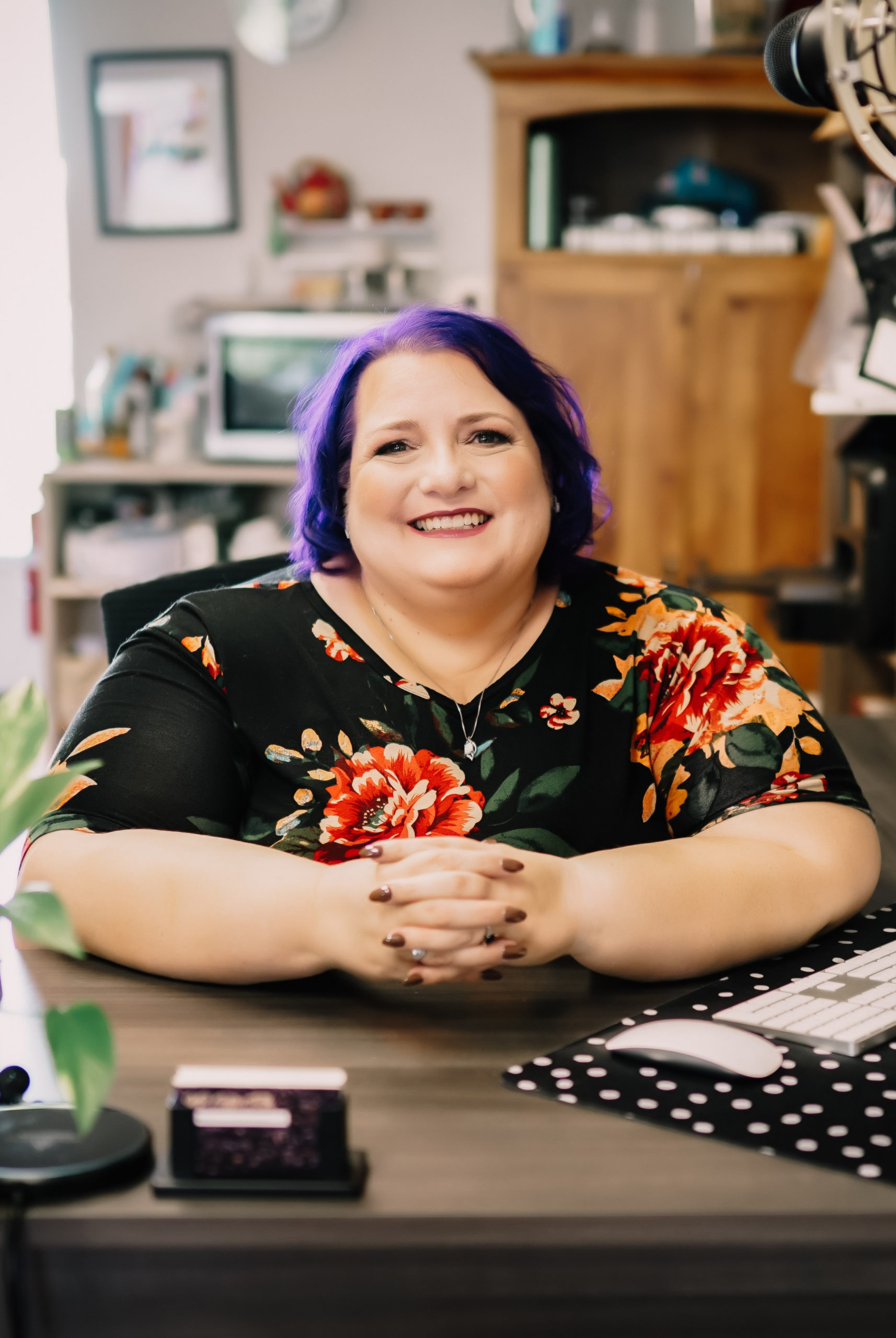
Michelle Frechette
Panelist and sponsorship organizer, moderator, and producer
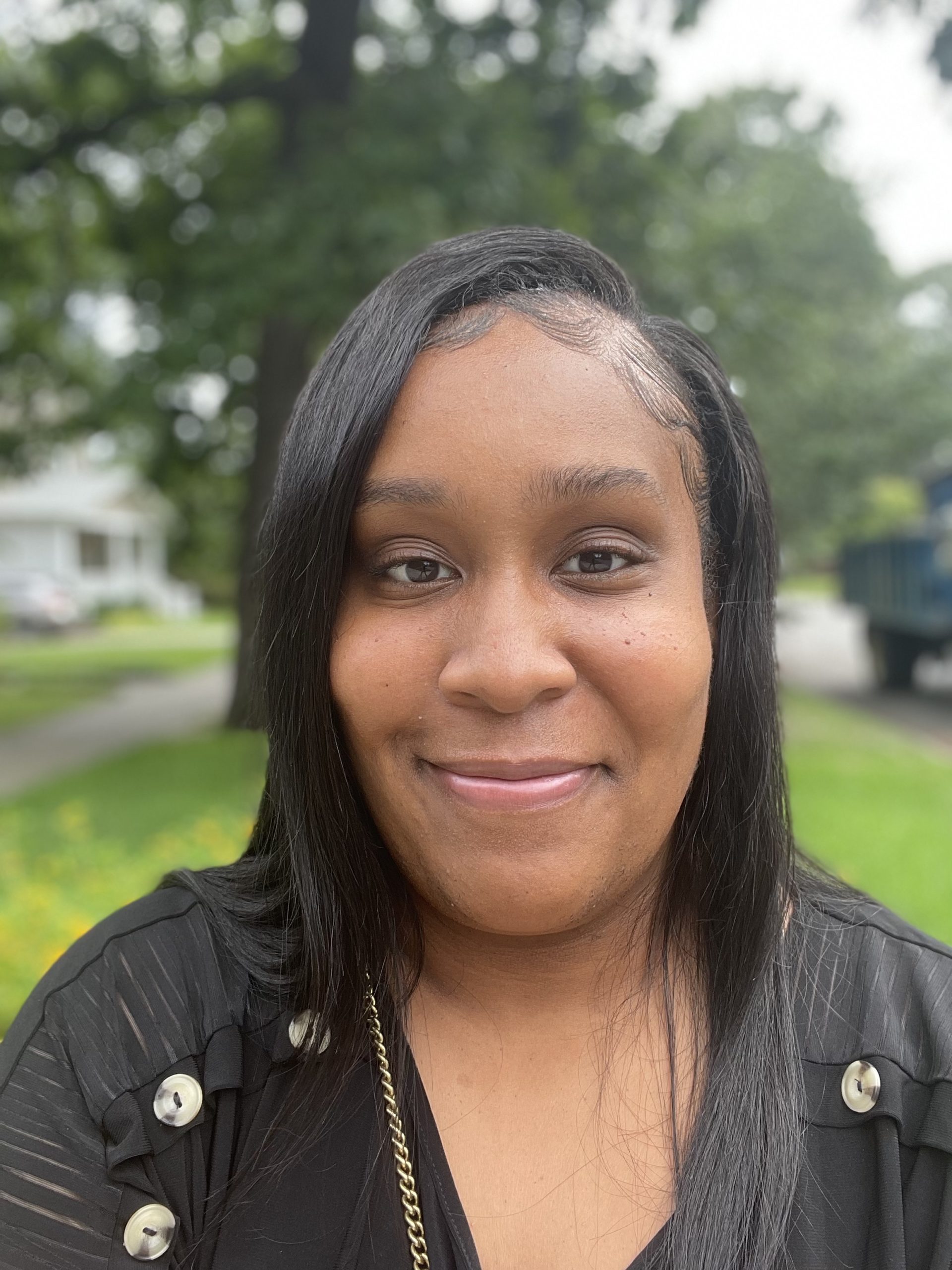
Nyasha Green
Moderator and social media manager.
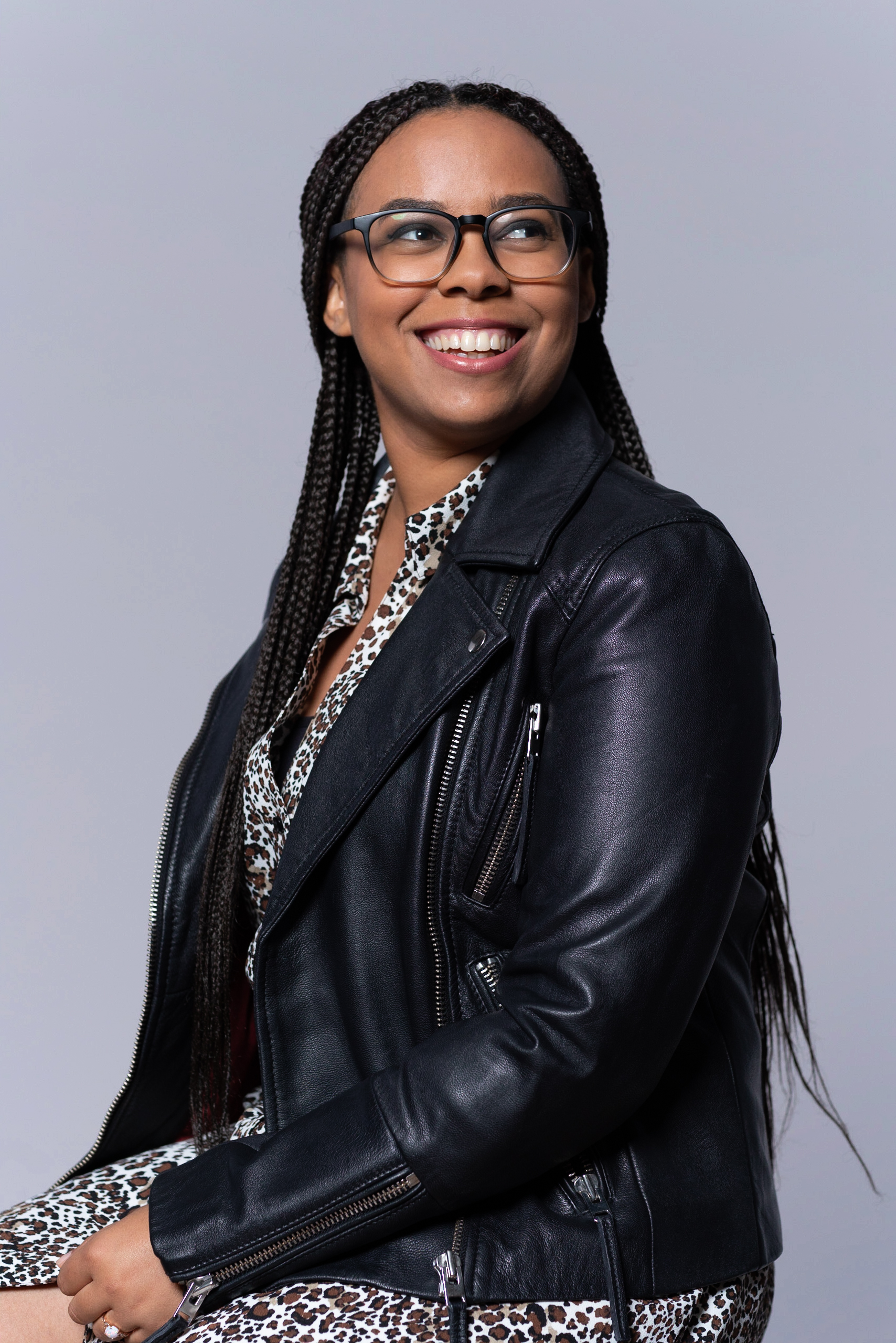
Allie Nimmons
Moderator, designer, editor and producer
Learn More About Underrepresented in Tech
Database
Use our database to connect with underrepresented folks to work with, or add yourself to find work and opportunities.
Podcast
Our weekly podcast discusses topics relating to underreprented people working in tech, as well as tips and advice for allies.
Newsletter
Our monthly newsletter contains news, updates, links, and more targeted toward the success of underrepresented people working in tech.
Our Services
Become a better ally. Pick our brains, or get help making your social media presence or your recruiting process more optimized for DEIB.




